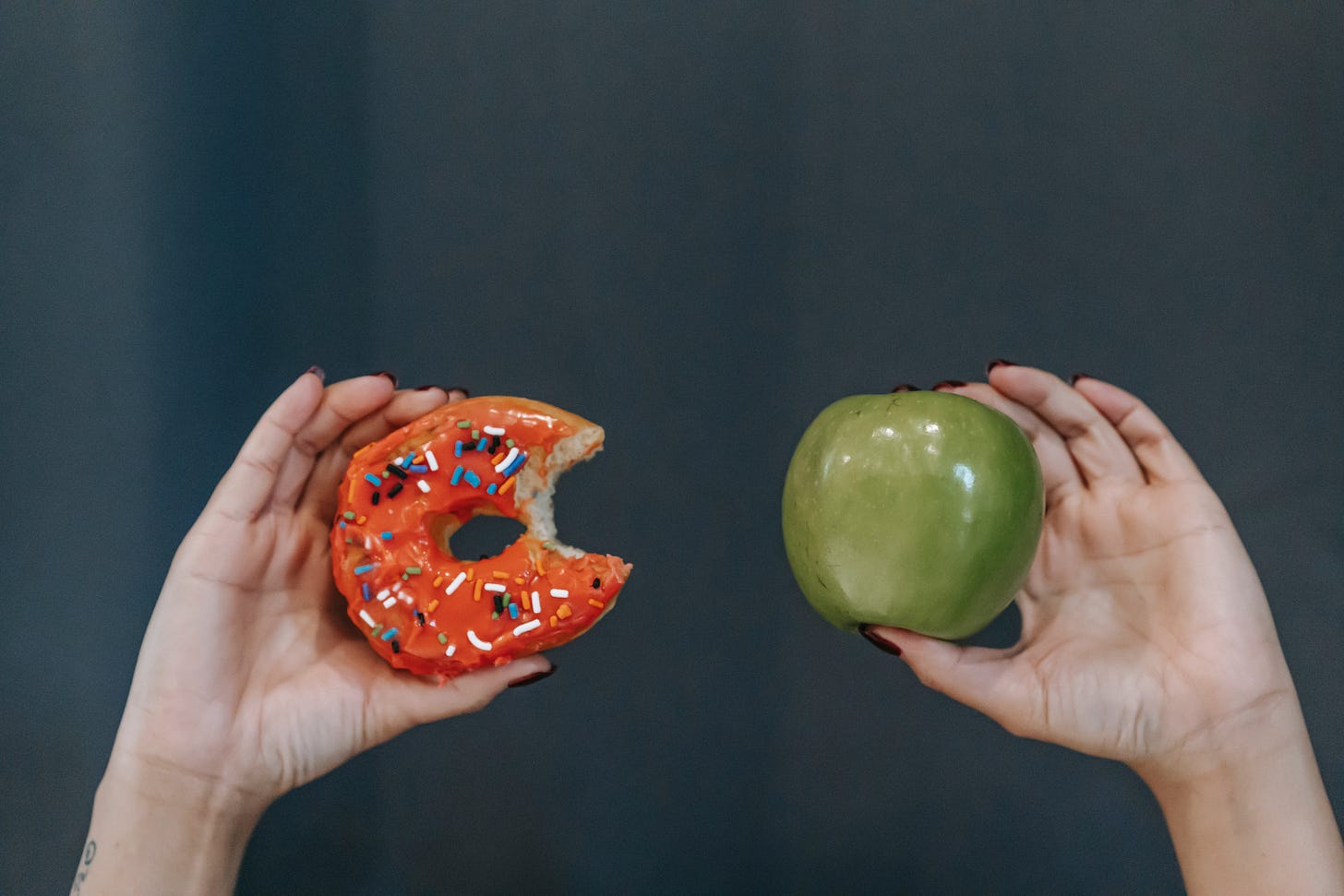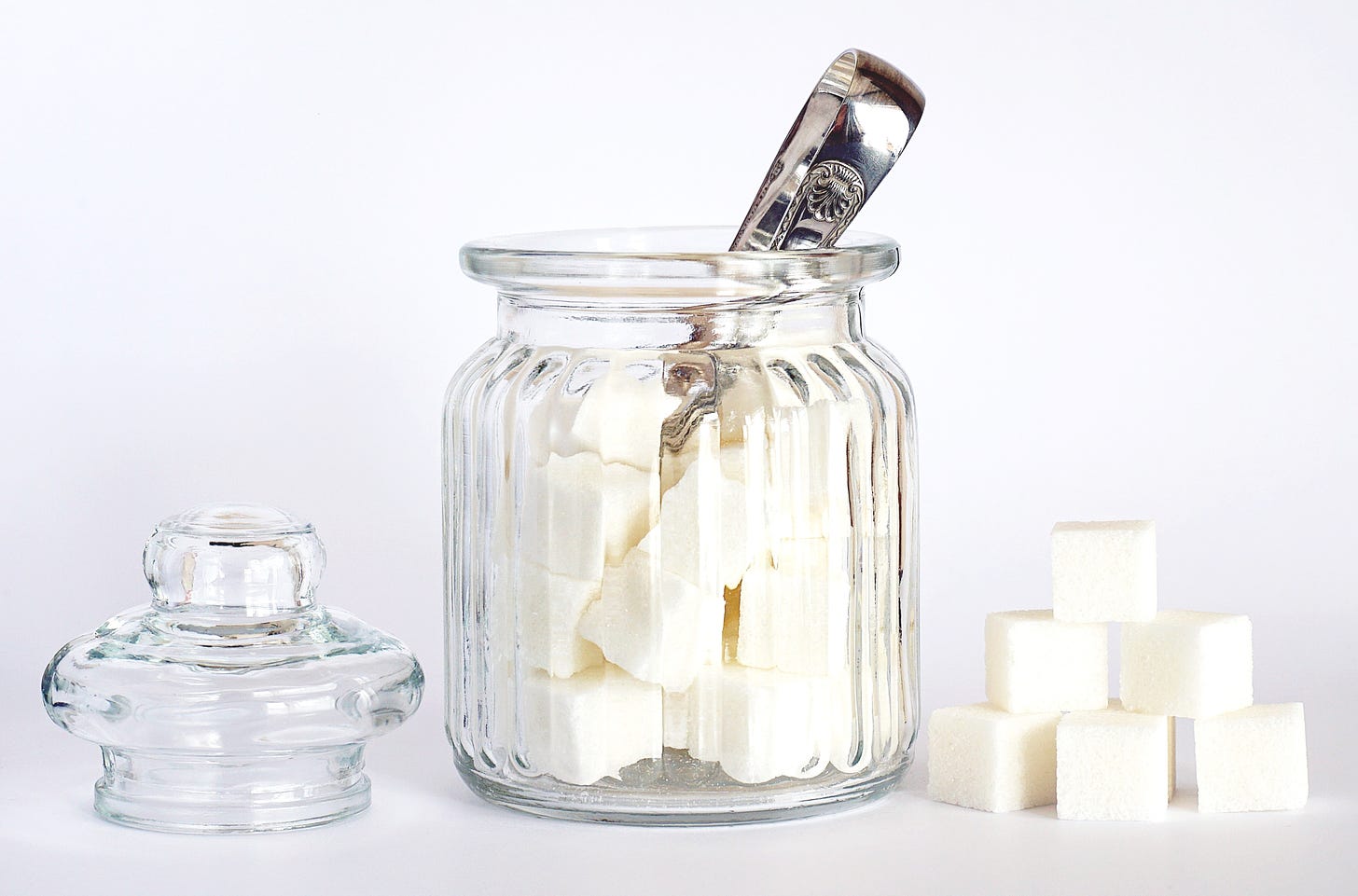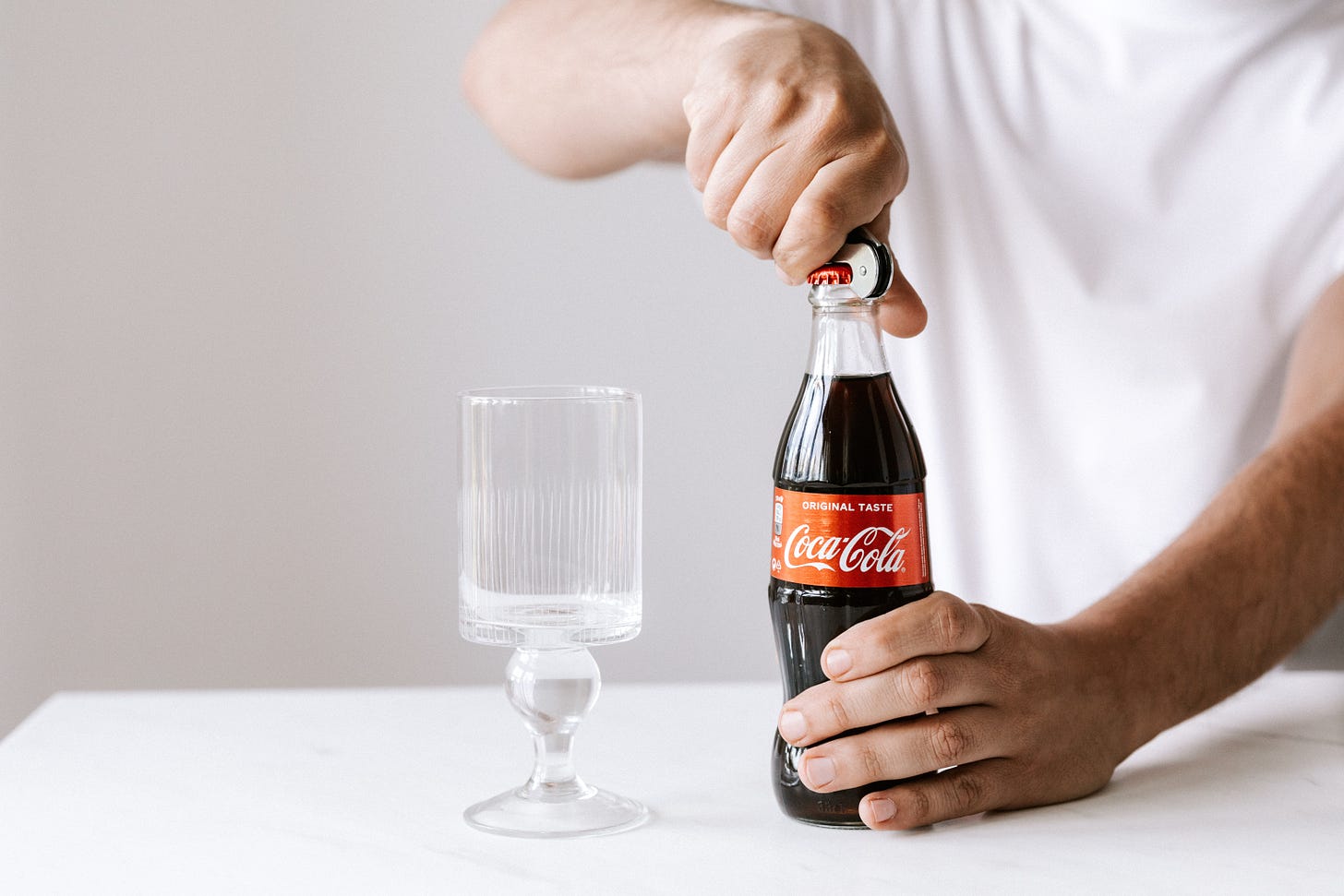
Being healthy often seems incredibly complicated to people looking for nutrition solutions. After looking at advertisements, scouring the internet or listening to various experts giving conflicting advice, many are left even more confused.
It doesn’t need to be like this. In the past, before all the dieting and "health products" took hold of our society, nutrition was much simpler. Good food was abundant and recognized. Unhealthy food (drive-throughs, take outs, etc), was a treat.
The human body has not changed since then, and what worked for us back in the day can also work for us now, says Business Insider. To gain optimal health, lose weight and feel better every day, then all you need to do is follow these 8 simple rules.
1. Optimize Nutrient Density
Choosing healthy food options is all about selecting foods that maximize nutrient density and minimize empty calories. For example here are three unhealthy versus healthy comparisons.
Unhealthy:
Canned Soup (90 calories)
Chocolate Chip Cookie (90 calories)
White Bread (90 calories)
Healthy:
1/2 Cup of Brown Rice (90 calories)
1/2 Cup of Kidney Beans (90 calories)
1 Cup of Spinach (90 calories)
All the above have similar calorie counts, but the healthy foods are packed with more nutrient dense ingredients beneficial to your body. It’s no secret that the micronutrient profile of a diet is more important than the caloric content concerning stimulation of hunger.
Some of the best nutrient-dense foods are healthy fats, clean beef (pasture raised), nuts, fruits, salmon, potatoes, liver, sardines, eggs, kale and most vegetables.
2. Eat Less Sugar
Sugar may be sweet, but it’s not so sweet for your health. It raises blood glucose levels, stresses your liver and causes damage throughout your body.
Multiple studies have found links between sugar consumption and heart disease risk factors, diabetes, fatty liver disease, and inflammation.
According to the Harvard School of Public Health, the inflammatory pathways of sugar in western diets increase the risk for cancer. In fact, the weight of evidence from over 30 individual studies suggests that added sugar is associated with weight gain and obesity. Want to get healthy? Ditch the sugar.
3. Eat Healthy Fats
Ever since fat was demonized, people started eating more sugar, refined carbs and processed foods instead. As a result, many people have become overweight and sick. But studies in the American Journal of Clinical Nutrition and the Journal of the American College of Cardiology show that fat, including saturated fat, isn’t as bad as it was made out to be. All sorts of healthy foods that happen to contain fat have now returned to the “superfood” scene.
Here are 10 high fat foods that are actually incredibly healthy and nutritious:
Avocados, dark chocolate, cheese, eggs, fatty fish, nuts, chia seeds, extra virgin olive oil, coconuts or coconut oil and full fat (plain) yogurt. Of course, some fat, such as the commercialized (industrial) variety, is bad for you and best avoided.
4. Avoid Industrial Fats
You should avoid trans fats and margarine. Vegetable oils are still clinging on to their “heart healthy” reputation, but in reality they’re harmful with too many omega 6 fatty acids, and negatively impact the ideal ratio of omega 3 to omega 6 fatty acids. Higher weight gain, inflammation, and chronic disease risk are the result
Another nutrition pitfall many people fall into is believing margarine spreads are better for you than butter. A 2019 study published in the journal Cell Metabolism found that soybean oil is more obesogenic than fructose, a simple sugar. The results also indicate that soybean oil is damaging to our metabolic health.
In a 2019 study published in The Lancet investigating the impacts of a diet high in vegetable oil, participants all had lower cholesterol levels – but significantly higher rates of mortality from heart disease. Most processed foods contain these industrial fats, so it’s best to stay away.
5. Go Easy On Carbohydrates
Many people have replaced fat in their diet with carbohydrate from foods such as bread, white rice, pasta, and juice. Here the problem: Many carbohydrates are refined today, especially breads, pastas, cereals and so on. These foods quickly break down into glucose in the blood, stimulating insulin release.
Insulin is known as the fat storage hormone and encourages the body to store fat. Rather than overeat simple carbohydrates like white breads or white rice, try the “real” sourdough” bread variety and brown rice. But don’t eat too much of them because a 2018 meta analysis published in the British Medical Journal found that lower carb diets had greater improvements in weight loss and CVD risk than higher carb diets. This is especially true if sedentary
6. Don’t Drink Your Calories
Sugar sweetened beverages are related to all sorts of health problems. Weight gain, obesity, diabetes, heart disease – you name it, and there’s a link.
When we drink refined sugars, they are digested almost instantly. The result is high blood glucose levels, raised insulin, and weight gain. A 2020 study published from the journal Circulation found that just a small daily intake of soda is associated with an increased risk of cardiovascular heart disease, after all other lifestyle factors are accounted for, and a 26% greater chance of developing diabetes.
For each 12oz can of soda consumed daily, there is a 60% greater chance of obesity, a 2020 journal Obesity study found. If you are still drinking it – stop!
7. Eat Fruits, Not Sweets
Fruits are amazingly healthy (and alkaline) for our body and are far superior to junk food. Fruit can even promote weight loss, if part of a healthy diet. They are a great source of fiber, vitamins, minerals and other essential nutrients, and are low in calories and fat.
When choosing fruit, go for lower in sugar and high in nutrients. A few of the better ones include: Avocado, (yes, technically they're a fruit, not a veggie), blueberries, blackberries, raspberries, strawberries, apples and pears.
A small serving of heavy cream poured over fresh berries is a great idea since eating fat with veggies and fruit increases absorption of fat soluble vitamins.
8. Avoid Processed Foods
Real food is NOT grown in a factory. Read the back of some food labels and the ingredients panel sounds like a science experiment. Huge international companies make these foods, and their primary goal is profit, and unfortunately, that comes at the expense of your health.
When you buy packaged foods from the supermarket, there’s a chance you’re eating trans fats, and 68% of all packaged food contains added sugars, the journal Nutrients found in 2019. Ultra processed foods promote weight gain, obesity, and disease; so avoiding it is the first step to a healthier life and body.
Follow these 8 health habits and you’re miles ahead of most people in health knowledge. You’ll maintain a healthy weight because these foods provide essential nutrients and help to regulate hunger and cravings, while providing the body with the energy it needs to function properly.












